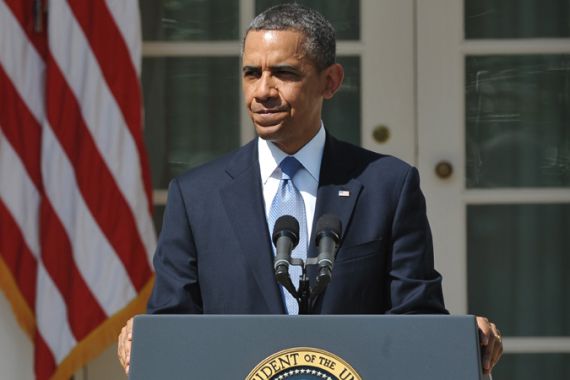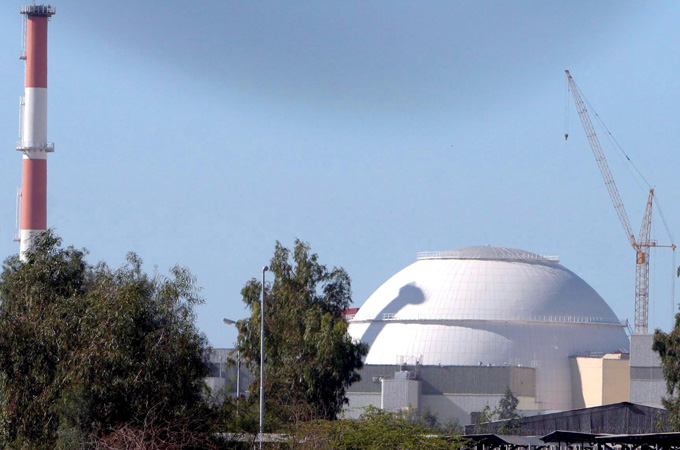Consequences of western intransigence in nuclear diplomacy with Iran
As long as Washington refuses to recognise Iran’s right to enrich, no substantial agreement will be possible.

To maintain the illusion of some prospect for progress in nuclear diplomacy with Tehran, European Union foreign policy chief Catherine Ashton will meet with Iran’s chief nuclear negotiator, Saeed Jalili, in Istanbul next week – on May 15. Purportedly, Ashton will see if the P5+1 dialogue with Iran can be put back on track after yet another round of nuclear talks with Iran failed last month.
Publicly, Western officials blame the failure either on the Islamic Republic’s upcoming presidential election or on that old fallback, Iranian “intransigence”. In reality, talks failed because America and its Western partners remain unwilling to recognise Iran’s right to enrich uranium under international safeguards.
As a sovereign state, Iran is entitled to enrich, if it chooses; as a party to the Nuclear Non-Proliferation Treaty (NPT), it is entitled to do so under safeguards. The NPT explicitly recognises signatories’ “inalienable right” to use nuclear technology for peaceful purposes. That this inalienable right includes the right to enrich is clear from the NPT itself, its negotiating history, and decades of state practice, with multiple non-weapons state parties having developed safeguarded fuel-cycle infrastructures potentially able to support weapons programmes.
Iran’s nuclear rights
If Washington recognised Iran’s right to enrich, a nuclear deal with Tehran could be reached in a matter of weeks. As long as Washington refuses to do this, no substantial agreement will be possible.
Yet the Obama administration is no closer than its predecessor to accepting safeguarded enrichment in Iran. This is partly due to pressure from various allies – Israel, Saudi Arabia, Britain, France – and their American supporters, who expect Washington somehow to defy legal principle along with political reality and compel Tehran to surrender indigenous fuel-cycle capabilities.
But the real reason for US obstinacy is that recognising Iran’s nuclear rights would mean accepting the Islamic Republic as a legitimate entity representing legitimate national interests. No American president since the Iranian Revolution – not even Barack Obama – has been willing to do this.
Washington’s unwillingness is grounded in unattractive, but fundamental, aspects of American strategic culture: difficulty coming to terms with independent power centres (whether globally or in vital regions like the Middle East); hostility to non-liberal states, unless they subordinate their foreign policies to US preferences (as Egypt did under Sadat and Mubarak); and an unreflective but deeply rooted sense that US-backed norms, rules and transnational decision-making processes are meant to constrain others, not America itself.
Because these attitudes are so fundamental, it is unlikely Obama will invest the political capital required to bring America’s Iran policy in line with strategic reality before his presidency ends. And so the controversy over Iran’s nuclear activities will grind on.
The world has experienced such diplomatic stasis before. In 2003-2005, Britain, France and Germany worked (ostensibly) to prepare a nuclear settlement with Tehran; Iran suspended enrichment for nearly two years to encourage diplomatic progress. The initiative failed because the Bush administration refused to join the talks unless Tehran was willing to abandon pursuit of indigenous fuel-cycle capabilities.
 |
| Spotlight
Iran Tensions
|
In 2009-2010, efforts to negotiate the exchange of most of Iran’s then-stockpile of enriched uranium for fuel for the Tehran Research Reactor collapsed for similar reasons. In the May 2010 Tehran Declaration brokered by Brazil and Turkey, Iran accepted all of Washington’s terms for a fuel swap, yet the Obama administration rejected the Declaration because it openly recognised Iran’s right to enrich. Three years later, the administration is once again undermining chances for diplomatic success with its inflexibility regarding Iran’s nuclear rights.
Delusion of US hegemony
The world has also seen what happens when America and its European partners demonstrate bad faith in nuclear diplomacy with Tehran – Iran expands its nuclear infrastructure and capabilities. When Iran broke its nearly two-year enrichment suspension in 2005, it could run less than a thousand centrifuges; today, it has installed 12,000 centrifuges, more than 9,000 of which process uranium gas to produce enriched uranium.
In February 2010, Iran began enriching uranium to the near-20 percent level needed to fuel the Tehran Research Reactor (TRR) after the US and its partners refused to sell the fuel; Iran consistently offered to suspend near-20 percent enrichment if it could obtain an adequate fuel supply for the TRR. After Obama torpedoed the Tehran Declaration, Iran accelerated production of near-20 percent uranium and began indigenously manufacturing fuel plates for the TRR.
With America and its European partners once again blowing an opening to accept Tehran’s nuclear rights and close a nuclear deal, we are likely to see another surge of nuclear expansion in Iran. Certainly Iran will continue enriching, at the 3-4 percent level needed for power reactors and at the near-20 percent level needed for the TRR, and installing more efficient centrifuges. Iran also plans to commission a heavy water reactor, perhaps as early as next year.
Although the International Atomic Energy Agency (IAEA) consistently certifies that no nuclear materials have been diverted from safeguarded Iranian facilities, all of these steps will be cited by Israel, the pro-Israel lobby in Washington, and other US constituencies hankering for military action as evidence that time for diplomacy has run out. Additionally, the Islamic Republic may find legitimate reasons – for example, building maritime reactors – to begin enriching above 20 percent. While such higher-level enrichment would be done under IAEA safeguards, this would also be interpreted in America and Israel as provocative Iranian “escalation”.
Obama would prefer to avoid another US-initiated war in the Middle East; thus, he will keep endorsing ploys (like Ashton’s trip to Istanbul) to maintain a façade of diplomatic “engagement”. But his unwillingness to revive America’s deteriorating regional position through serious diplomacy with Tehran will increase pressure on him to order US strikes on Iranian nuclear facilities before his presidency’s end.
Rather than openly abandon the delusion of US hegemony in the Middle East, Obama will try to placate hawkish elements by escalating America’s ongoing “dirty war” against the Islamic Republic – including economic warfare against civilians, threatening secondary sanctions against third countries in violation of US-WTO commitments, cyber-attacks, support for groups doing things inside Iran that Washington elsewhere condemns as “terrorism”, stoking sectarian tensions, and fuelling further violence in Syria to prevent Tehran from “winning” there. But that, too, will only further destabilise the Middle East and bring America and Iran ever closer to overt confrontation.
Flynt Leverett and Hillary Mann Leverett are authors of Going to Tehran: Why the United States Must Come to Terms with the Islamic Republic of Iran (New York: Metropolitan, 2013) and teach international relations, he at Penn State, she at American University.
You can follow the editor on Twitter: @nyktweets